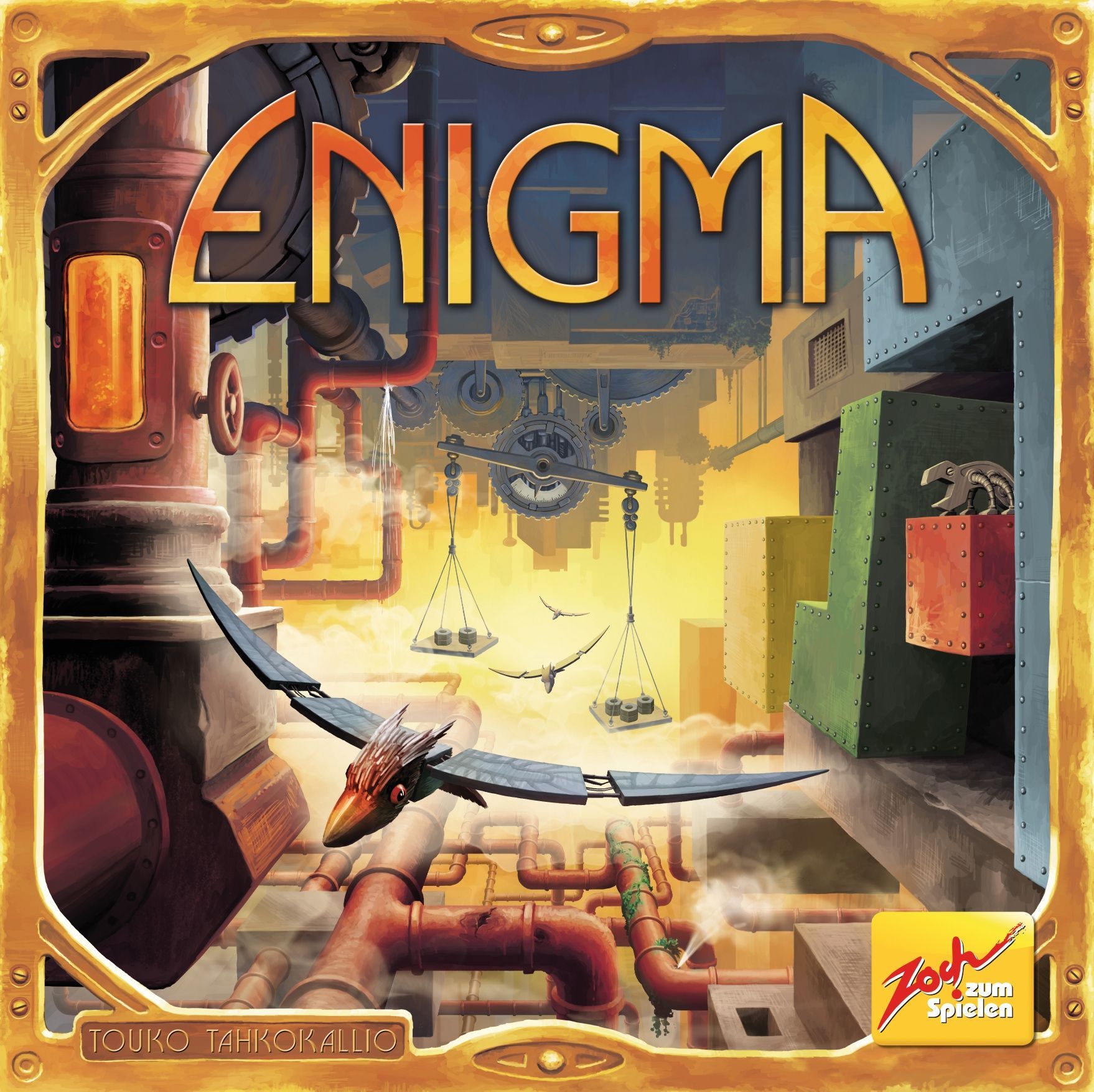
Enigma (2012)
2 - 4 persone
45 - 45 min
8+
Al momento questo prodotto non è disponibile presso nessun venditore.
Nomi alternativi: Enigma, 에니그마
Artisti: Victor Boden, Paul Laane
Editori: Albi, Competo / Marektoy, Filosofia u00c9ditions, Korea Boardgames, Z-Man Games, Zoch Verlag
Riconoscimenti: 2012 Vuoden Peli Family Game of the Year Nominee, 2013 u00c5rets Spill Best Family Game Nominee, 2013 Guldbrikken Best Adult Game Nominee, 2016 MinD-Spielepreis Short Game Nominee
Editori: Albi, Competo / Marektoy, Filosofia u00c9ditions, Korea Boardgames, Z-Man Games, Zoch Verlag
Riconoscimenti: 2012 Vuoden Peli Family Game of the Year Nominee, 2013 u00c5rets Spill Best Family Game Nominee, 2013 Guldbrikken Best Adult Game Nominee, 2016 MinD-Spielepreis Short Game Nominee
Descrizione: In Enigma, players are exploring an ancient temple, solving different problems to make their way from room to room.
Problem solving is done simultaneously in four different categories — tangrams, block-stacking, canal-building and balance problems — and those who succeed expand the temple with the problem tile they solved, thus adding a new chain of rooms inside the temple or extending an existing chain of rooms. After placing a tile, a player can occupy a room on that tile with one of his three archeologists as long as no other room of the same color is already occupied in that chain. When the chain is closed — that is, when the chain has no "loose ends" that can be expanded upon — any archeologists in that chain's room return to their players, and players score 1 point for each archeologist they receive. The game ends when somebody reaches 15 points, and the player who has the most points wins.
Problem solving is done simultaneously in four different categories — tangrams, block-stacking, canal-building and balance problems — and those who succeed expand the temple with the problem tile they solved, thus adding a new chain of rooms inside the temple or extending an existing chain of rooms. After placing a tile, a player can occupy a room on that tile with one of his three archeologists as long as no other room of the same color is already occupied in that chain. When the chain is closed — that is, when the chain has no "loose ends" that can be expanded upon — any archeologists in that chain's room return to their players, and players score 1 point for each archeologist they receive. The game ends when somebody reaches 15 points, and the player who has the most points wins.
